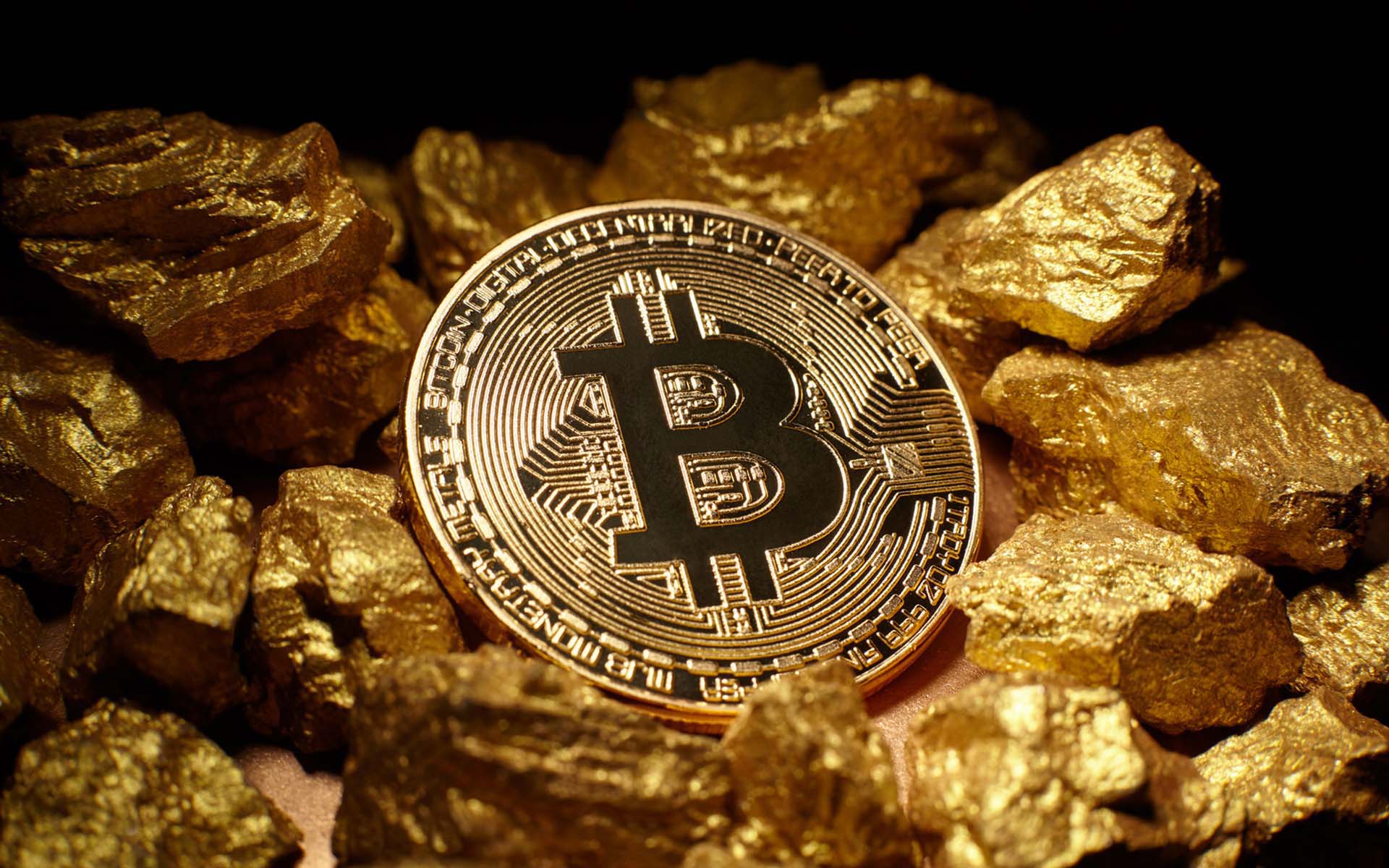Gold has always been the primary standard by which we measure value, thanks to its continued demand as a currency, store of value and speculative asset. However, Bitcoin — often likened to “digital gold” — is causing investors to question gold’s dominance.
A New Challenger Emerges
Bitcoin’s first true challenge for gold’s throne came when the dominant cryptocurrency surged from under $1,000 to roughly $20,000 in 2017. At the same time, the price of gold was stagnating around $1,200 per ounce — causing almost everybody involved in finance and investing to take note.

Pete Thomas, senior vice president of Zaner Precious Metals, was one such professional who noticed Bitcoin’s effect on the sale of gold, telling CNBC that some of his regular customers were choosing bitcoin over the yellow rock — a phenomenon which his colleagues and competitors were also experiencing.
Thomas explained that one of his long-time clients, a major global coin dealer, also witnessed a change in the tides:
He told us that 20 percent of his business was now crypto. People were going to a gold broker and swapping crypto out or swapping gold to buy crypto with him. He’s a real numbers guy and really reliable.
Not Having It
Not everyone is convinced that Bitcoin will dethrone gold, of course.
Joe Foster, portfolio manager and strategist for the gold and precious metals strategy at VanEck, which offers the VanEck Vectors Gold Miner ETF (GDX) and the VanEck Vectors Junior Gold Miners ETF (GDXJ), does not believe that investors were actually trading gold and bitcoin during last year’s bull run. He told CNBC:
There was no trading data cited. I never even saw an interview of anybody saying that I sold my gold to buy bitcoin. To me, it was all just rampant speculation that because bitcoin is going up and gold has more or less been trending sideways, people must be going out of gold and buying bitcoin.
Foster also claims that substituting gold for bitcoin would be simply ludicrous, explaining:
For centuries, gold has been a safe haven store of wealth. In today’s economy, gold is used as a hedge against systemic financial risk. And I don’t see how anybody in their right mind would think bitcoin is any kind of a hedge against financial risk given the volatility, given the fact it’s got a very short history.

Undermining
While many debate the relationship between Bitcoin and gold, the question may revolve around whether or not we should even be comparing the two.
For example, The World Gold Council fails to see the relationship between Bitcoin and gold — perhaps rightfully so. It wrote in it’s January report:
Cryptocurrencies may become an established part of the financial system. But, in our view, gold is very different from cryptocurrencies, as gold: is less volatile, has a more liquid market, trades in an established regulatory framework, has a well understood role in an investment portfolio, [and] has little overlap with cryptocurrencies on many sources of demand and supply.
Nevertheless, not even the World Gold Council could deny Bitcoin’s undermining capabilities. Its report explained:
Monetary policy is a key central bank tool today. If people choose to transact in cryptocurrencies instead of fiat currency, it might make monetary policy less effective and undermine the tools used by the Fed and other central banks to influence the economy and prompt the government to regulate these products.
What do you think about Bitcoin’s relationship to gold? Do you think the dominant digital currency will ever be as stable a store of value as the world’s current gold-standard? Let us know in the comments below!
Images courtesy of Shutterstock, Bitcoinist archives.










